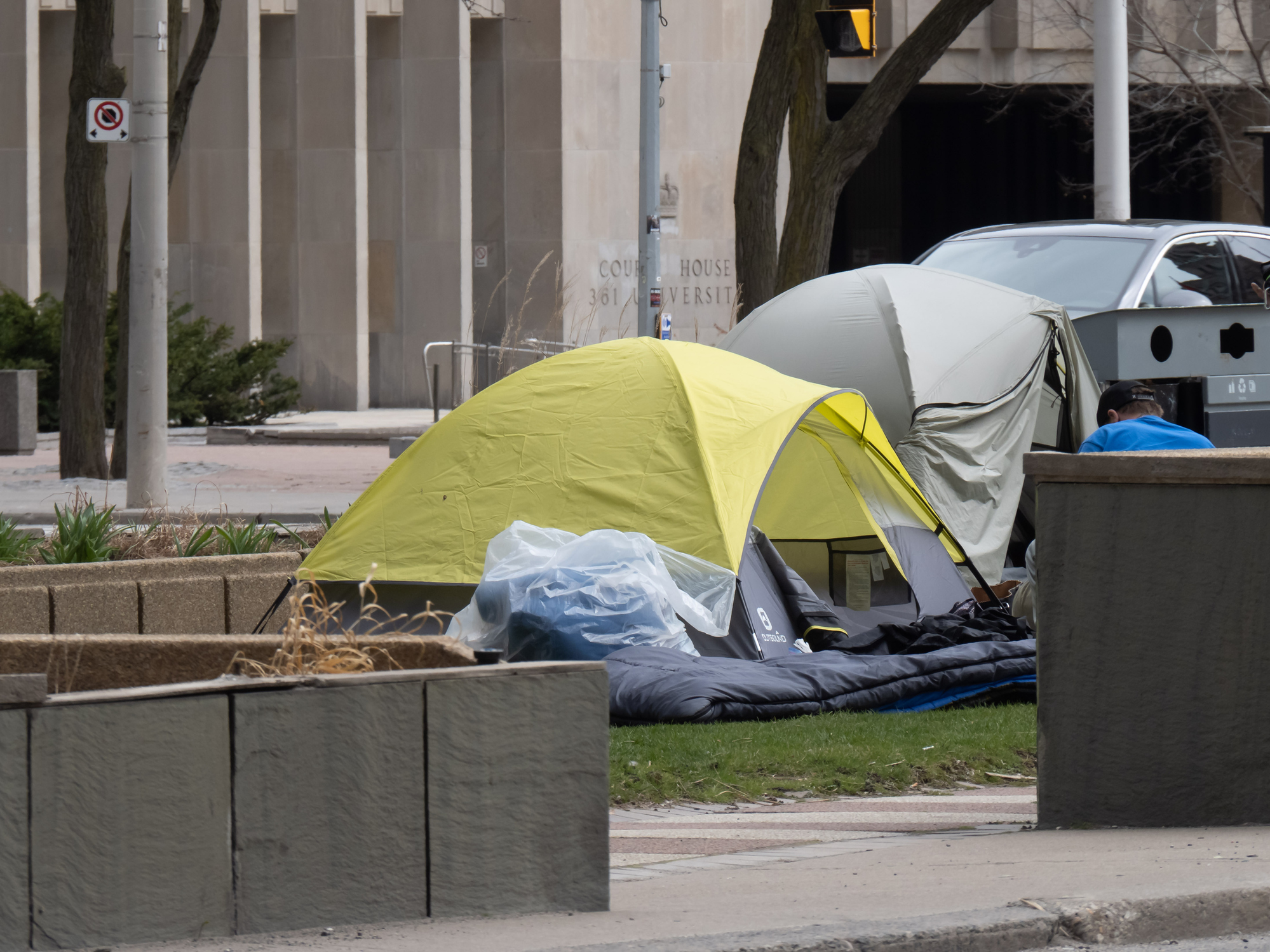In our recommendations to the province on the 2024 Ontario Budget, Wellesley Institute called for a focus on homelessness. We urged the province to:
- put in place a plan to end homelessness in 10 years,
- make sure their general housing targets will lead to affordability and to lifting Ontarians out of homelessness,
- invest in enough new supportive housing to catch up with the need by 2030, and
- invest in homelessness prevention.
Although the budget emphasizes housing affordability, we are concerned that affordable housing, and even more importantly, ending homelessness, is not receiving the attention it requires.
Homelessness dramatically reduces health and life expectancy. It imposes significant costs on our health system and economy. While some funding proposed in Ontario’s 2024 budget may expand housing projects, there is unfortunately nothing to indicate the province ever intends to end homelessness.
Have a Plan to End Homelessness
We urged the province to show Ontarians a 10-year plan to end homelessness they could read, assess, track and believe in. The government should be developing a plan to house, through provincial action, at least one-third of what the homeless population will be in 10 years, and coordinate with other levels of government on the rest.
Far from delivering a plan, homelessness is barely mentioned in this budget.
Who Will 1.5 Million Homes Actually Help?
Although the province did not deliver a plan to end homelessness in 10 years, it has committed to building at least 1.5 million new market homes in that time and is pressing municipalities to encourage new builds to achieve this. Unfortunately, that commitment still does not require cities to explain how the funding they might receive will deliver affordable or deeply affordable units. They do not need to indicate how many Ontarians will be lifted out of homelessness.
The province has still not put in place anything to ensure the new housing they hope to encourage will really be affordable.
Supportive Housing
Wellesley Institute helped develop the recent Toronto Supportive Housing Growth Plan, which demonstrated the need for 18,000 new supportive housing units in Toronto by 2030. Toronto alone should be adding at least 1,800 units this year. This does not factor in failures to build and fund in previous years, nor how increased housing costs and population growth may have increased that need.
This budget has no funding to build any supportive housing units this year. Ontario is falling even further behind what we need.
We recognize the government did announce funding intended to “maintain” at least some of the current stock, and we hope they are at least committed to not losing any this year. We also note the budget commitment to building new units in next year’s budget, and strongly urge the government to ensure that number will make up for lost time.
Prevention
Finally, preventing homelessness is far better than alleviating it later. We recommended that one action the province consider was providing rent supplements to prevent all those on the brink from falling into homelessness. Other steps to support renters would also certainly be helpful.
We did not find anything in this budget targeted at preventing homelessness.
Conclusion
It is important to remember the province is the level of government best positioned to lead on ending chronic homelessness. It has the most significant constitutional responsibilities around homelessness, including for health, property, and over the municipalities themselves.
Ontarians cannot afford more inaction on homelessness.
